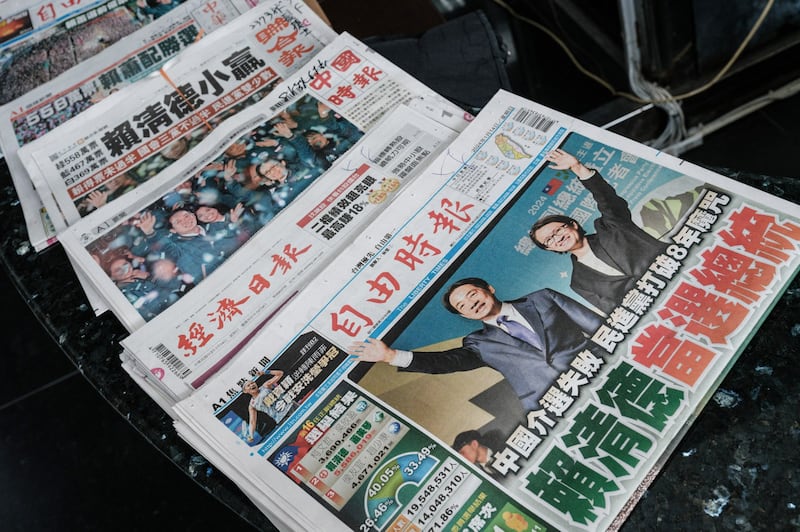Taiwan, which has confronted years of mainland Chinese disinformation, says it is striving to build a platform that is internationally scalable and can transform into a global system to combat cognitive warfare.
Numerous counter-disinformation organizations in the government, private sector and community have sprung up over the years. Their effective collaborations have most recently been seen during January’s presidential elections. But a structural approach that integrates entities to create a whole that is greater than the sum of the parts is currently lacking within and among government agencies.
With the Cognitive Warfare Research Center that it established in January, the Ministry of Justice Investigation Bureau is taking the first step to building an island-wide government system that could develop into a global platform stringing together other countries with common standards and enforcement.
“The whole world’s understanding of what cognitive warfare is like telling you about ghosts. What does a ghost look like, no one can tell; so cognitive is like a mess,” said Wen-Ping Liu, member of the ministry’s research committee in an interview with Radio Free Asia.
“If you can’t tell me, you can’t concretize it,” Liu said, adding that the center’s first step is to “concretize cognitive warfare,” in other words, give it a form and definition.
“After you feel it out, you can do the next thing – guard against ghosts that can harm you. You must at least know what a ghost is.”
After combining its internal strengths, the bureau wants to integrate all forces and capabilities across Taiwan such as the coast guard, police and the defense ministry. Eventually, the objective is to elevate and transform the platform into an international facilitating network of control.
Over the years, China has infiltrated Taiwan’s information ecosystem with misconstrued narratives and conspiracy theories to undermine its democracy and sow discord among its 23 million population. The disinformation campaigns are usually most intense around election periods.

In the recent presidential elections, one widely circulated narrative was the “yimeilun,” or U.S. skepticism, designed to convince Taiwanese people that America is an unreliable partner and domestically unstable. It would serve Chinese propaganda goals as closer ties between Taiwan and the U.S. would be associated with steering the island towards war with China. Closer relations with China, on the contrary, would be seen to mean peace.
Nonetheless, the ramped-up pre- and-mid-election disinformation offensive didn’t prevent Beijing’s loathed Democratic Progressive Party (DPP) from winning an unprecedented third term.
The University of Gothenburg in Sweden has identified Taiwan as the society most impacted by disinformation originating from beyond its borders. Inevitably, that compelled Taiwan to build, arguably, one of the world’s most mature communities of fact checkers, government support and educational efforts to raise public skepticism to sniff out falsehood and fend off China’s disinformation onslaught.
Liu said the battle will continue, and the pace of attacks and therefore, the speed needed in response will only increase with advancement of technology and artificial intelligence. The narratives will also change, though what and how remains to be seen.
The Chinese Communist Party is looking for other ways and narratives, Liu believes. “We are still observing what exactly it is going to use.”
Economic enticement is a well-tried tactic but China’s slumping economy may have made this less viable. It will still be used, nevertheless, he added.
Edited by Mike Firn and Taejun Kang.
